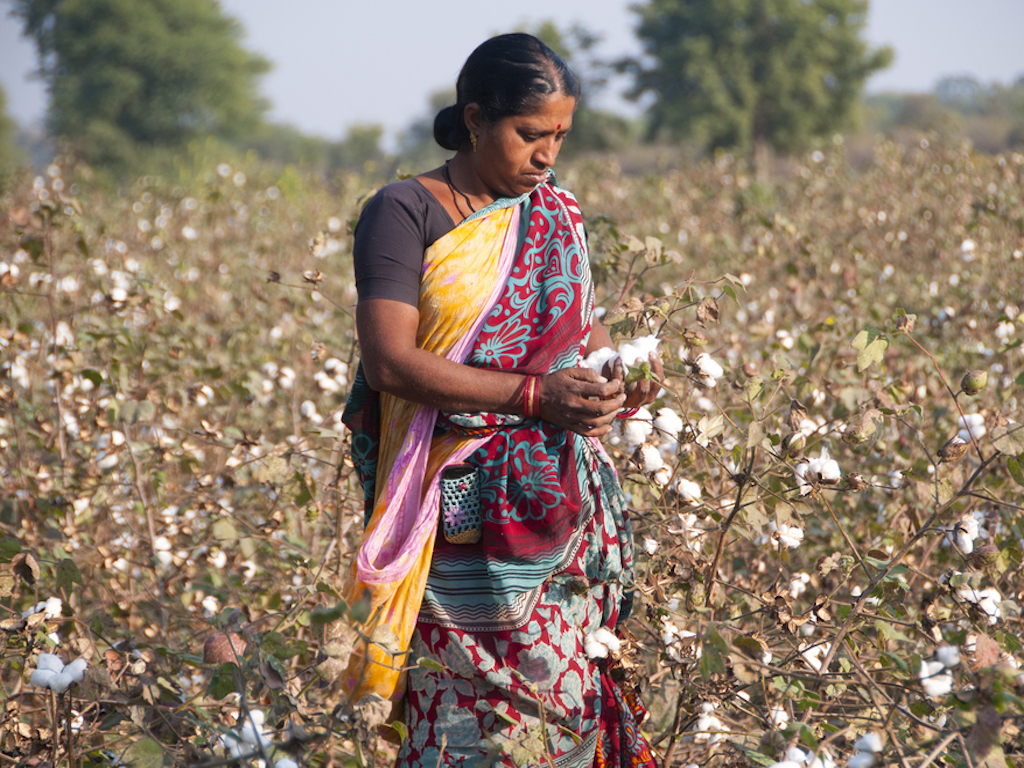3 Mins Read
Agrochemical multinational corporation Monsanto is responsible for huge socioeconomic damage within the Indian farming community ever since they launched illegal operations of field trials decades ago to make inroads into the market. After years of pressuring farmers to adopt a strain of Bt Cotton – which unleashed devastating consequences – these farmers, backed by the Indian government, are fighting against the corporation by returning to using native cotton seeds.
In 1997, Monsanto began illegal open field trials of its genetically modified (GMO) Bt cotton strain and launched the seeds’ sales in the following year. Unlike native seeds, Bt Cotton is a GMO cotton variety that is pest-resistant designed to combat the ballworm. Since 2002, the use of Bt Cotton has grown exponentially in India, but Monsanto’s role has been increasingly subject to scrutiny since their seeds are expensive, lose effectiveness after one generation and later became resistant to fighting pink bollworm infestations, leading to poor yields and heavy debts incurred by local farmers.
According to the Agricultural Ministry of India, the socioeconomic crisis spurred on by Monstanto’s inception into Indian agriculture has led to a spate of farmer suicides between 2011 and 2012. To date, there have been over 300,000 suicides associated with the damage the American company had left behind, from piling debts to the cascading sociocultural impacts of losing livelihoods.
Now, farmers backed by the Indian government’s initiatives, are fighting back by switching to using indigenous seeds to grow cotton. Since 2013, authorities have been encouraging the use of native varieties of cotton that are more suited to specific local climates and can be saved and regrown for the next year. Under statewide campaigns, Goa, Rajasthan and Sikkim have begun a program to help farmers produce 100% organic agriculture through providing financial assistance to obtain organic fertilisers and bio-pesticides. And these have had an effect: Monsanto’s India sales have dipped by more than 15%, a loss amounting to US$75 million.
Fibers of Freedom, an organisation based in Vidharba, the region at the heart of the Bt cotton crisis, has also stepped up to help Indian cotton farmers. Their flagship program provides immediate support to those indebted farmers, and particularly widows of farmers who have committed suicide to encourage the return to the more sustainable alternative of growing organic natural cotton.
“We have created community seed banks with indigenous seeds and helped farmers go organic. No GMO seeds, no debt, no suicides,” said Fibers of Freedom founder Vandana Shiva.
The adoption of organic agriculture would additionally bring advantages to our environment in the midst of our planet’s current climate crisis. According to a recent meta-analysis by Dutch researchers at the University of Twente, organic agriculture could hold the key to make progress on as many as 8 out of the 17 United Nations Sustainable Development Goals (SDGs). Among other targets, organic farming could deliver climate action targets, protect biodiversity, bring clean water for all and help achieve zero hunger. With Asia-Pacific lagging behind on SDG progress, the switch that Indian farmers are making away from Bt cotton could bring about a host of other positive impacts on top of alleviating the problems the community has faced due to the GMO crop.
Lead image courtesy of Sustainable Japan.




